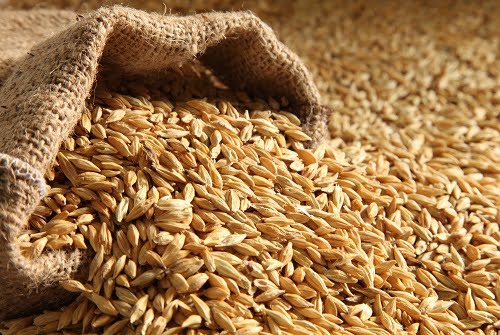Pregnancy can bring drastic changes in your body and life in general. It is a wonderful period for a woman and her family. As the nine months unfold, there are so many things that you have to deal with. There may be many abnormalities that happen to your body during this phase.
Having a headache, upset stomach, dizziness, anxiety, nausea, fatigue and weakness are very common during this phase. Swelling is another issue that pregnant women have to deal with. You may have your arms, legs and hands swell up during pregnancy. What you would be experiencing, is edema.

Cause – Why does it happen?
Edema is when excess fluid collects in your tissue. It is normal to have a certain amount of swelling during pregnancy. It is because you are retaining more water. Also, changes in your blood chemistry may cause some fluid to shift into your tissue. In addition to that, the growing uterus puts pressure on your pelvic veins and your vena cava, that is, the large vein on the right side of the body that carries blood from your lower limbs back to the heart.
The pressure slows down the return of blood from your legs, causing it to accumulate in one place, which forces fluid from your veins into the tissues of your feet and ankles. Hence, swelling during pregnancy becomes a common woe amongst women.
Many of the pregnant women are tired of the swelling that occurs while pregnant because there are really less known ways to cure it. But today, we will discuss the reasons, the prevention as well as the treatments of swelling in pregnant women. Taking well care of the baby as well as yourself, both are equally important for a good and successful pregnancy.
When is it Most Likely to Affect?
Edema is most likely to trouble you during the third trimester. It may be particularly severe for women with excessive amniotic fluid or those carrying twins or multiple babies. Edema tends to be worse at the end of the day. It particularly affects most during the scorching heat of summer. Hence, this is when swelling during pregnancy becomes a major issue in most women.
After the baby is delivered, the swelling will disappear quite rapidly as your body gradually eliminates the excess fluid. You may find yourself urinating frequently and sweating a lot in the first few days after childbirth.
How does it Affect?
A certain amount of edema or swelling is normal in the ankles and feet during pregnancy. Some mild swelling in your hands may also occur. If you notice swelling in your face or puffiness around your eyes, more than slight swelling of your hands, or excessive or sudden swelling of your feet or ankles then it could be a severe case of preeclampsia, a serious condition.
If you notice that one leg of yours is significantly more swollen than the other or you have a striking pain or tenderness in your calf or thighs, it is best to visit a doctor and take expert advice. This kind of symptoms could signal a blood clot, another very serious condition. Visiting a doctor for expert advice is always beneficial when your own health as well as the baby are concerned.
See More: Nausea In Pregnancy
How to take Care of it?
Swelling in ankles and feet is a common pregnancy symptom. These are some of the ways to reduce swelling during pregnancy.
- Lie and relax on your side. You can help in relieving the increased pressure on your veins by lying on your side. Although either side will do, since the vena cava is on the right side of your body, resting on your left side works best.
- Keep your feet up whenever possible. While at work, keep a stool or pile of books under your desk. It will help to not cause accumulation of fluid in your thighs and legs.
- While sitting, do not cross your legs or ankles and lock your joints.
- Stretch and flex your legs frequently while sitting. You can do simple exercises like stretching your leg out, heel first, and gently flex your foot to stretch your calf muscles. Also, rotate your ankles and wiggle your toes.
- Take regular breaks from sitting or standing so that your muscles do not sleep off.
- Take short walks every now and then. It will help keep your blood from pooling in your lower parts of your body.
- You should wear comfortable shoes that stretch to accommodate any swelling in your feet.
- Avoid wearing socks or stockings that have tight bands around the ankles or calves.
- Try and wear waist-high maternity support stockings. Put them on as soon as you get out of bed in the morning so blood doesn’t have a chance to pool around your ankles.
- Drink plenty of water. Strangely, this helps your body retain less water.
- Do exercise regularly, especially by walking, swimming, or riding an exercise bike.
- Try a water aerobics class. Here, you are immersed in water that may temporarily help reduce swelling, particularly if the water level is up near your shoulders.
- Always eat well, and avoid junk food.
See More: Acyclovir During Pregnancy
There are many problems that you may have to face during pregnancy. Edema is just one of them. It is a temporary problem that will go away once the period is over. These are minor struggles that you have to go through in this phase. All the struggles and sacrifice become worth having once you have your beautiful baby in your arms. The joy of motherhood makes up for all the stress and discomfort that you have to face during the period of pregnancy.


